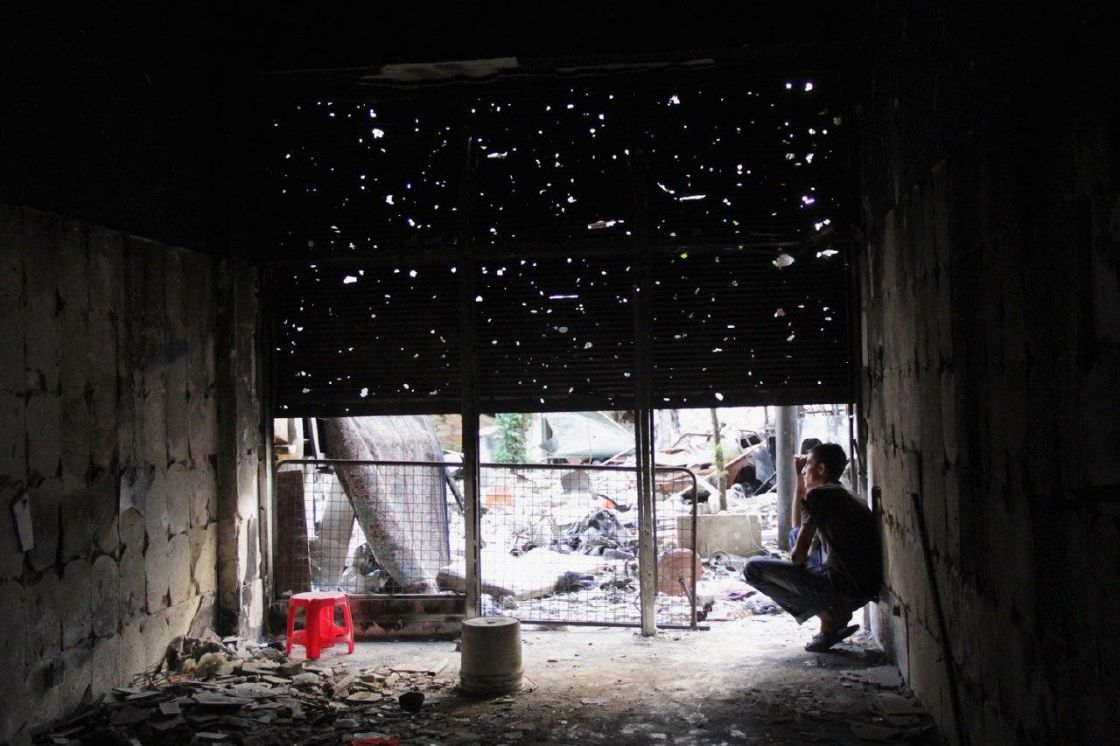- Editorials
- Posted
2254 and the Right to Self-Determination
Renewed discussions have surfaced recently, about readings and interpretations of UNSC Resolution 2254, and particular issues of it. Perhaps this is naturally expected; It has become common to see discussions of this kind at every new turning point, and this is particularly true in such circumstances that have matured to a point permitting the full implementation of this Resolution!
Within these discussions, some materials published on Russian and non-Russian websites were used that dealt with controversial issues related to the Syrian cause, some of which contained added values that could be used, but also contained opinions that deserve to be reassessed, especially with regard to the issue of the “transitional governing body” and its position within the international resolution.
The first thing that should be recalled in this context is that despite of the fact that the Arabic version of Geneva Communique and the Arabic version of UNSC Resolution 2254 had the Arabic term “Hay'at Al-hokm Al-intiqali” (4 times in the former, and once in the latter), and despite of the fact that this Arabic term literally means “transitional governing committee” not “transitional governing body” (as the latter is adopted by the English version of those two documents), and despite of the fact that the more exact Arabic word “Jism” (body) could have been used instead of “Hay'at” (committee), what should be emphasized here is that in both documents there are a set of characteristics assigned to this transitional governance, on top of which is that it has to be formed through consensus between Syrians and within a Syrian-owned and Syrian-led political process, and herein lies the essence of the matter. In UNSCR 2254, this essence is evident from the context of the first occurrence of the term: “Reiterating that the only sustainable solution to the current crisis in Syria is through an inclusive and Syrian-led political process that meets the legitimate aspirations of the Syrian people, with a view to full implementation of the Geneva Communiqué of 30 June 2012 as endorsed by resolution 2118 (2013), including through the establishment of an inclusive transitional governing body with full executive powers, which shall be formed on the basis of mutual consent…”.
When trying to attack or defend UNSCR 2254, some are basing themselves on the assumption that it was an American project approved by the Russians. The truth, is that the disagreement between the Russians and the Americans was not about the existence of a transitional period nor was it about any other point of the resolution, but their whole disagreement is rather concentrated around one point: What is the mechanism for forming the “transitional governing body”? The American opinion has been, as usual, that formation of the transitional governing body has to be externally imposed upon the Syrians, while the Russians has insisted that only the Syrians are entitled to do so, because this is an essential part of their right to self-determination.
The resulted outcome was that the latter opinion won, and that is precisely why we adhere to UNSCR 2254, because in its essence, and as we have repeatedly said, it is: a tool for Syria's recovery from its crisis, and for the enforcement of the Syrian people's right to self-determination.
Although the components and phases of the transitional period whose sequence is explained in the Resolution begin with the “transitional governing body”, TGB, (which we call it as such, as it occurred in the English version of UNSCR 2254 and as we use it in its more precise Arabic translation “Jism Al-hokm Al-intiqali”), and then the constitution and the elections, but in a realistic sense there is no objection to starting from another point, namely the constitution (as has been attempted so far), as all the provisions of the Resolution have to be ultimately implemented.
The broader meaning of the right of the Syrian people to self-determination is not restricted to their choices of the form of their country's government, regime, and constitution, but also extends to their right to complete and undiminished sovereignty over all of their territories, which means ending all forms of foreign interventions in Syria, which also means ending all occupations on the Syrian land, including the Zionist entity's occupation of the Syrian Golan, up to putting power completely in the hands of the Syrian people for the first time in their modern history. All this can only pass through one path, which is the full implementation of UNSC Resolution 2254.
Kassioun Editorial, Issue No. 983, September 14, 2020


